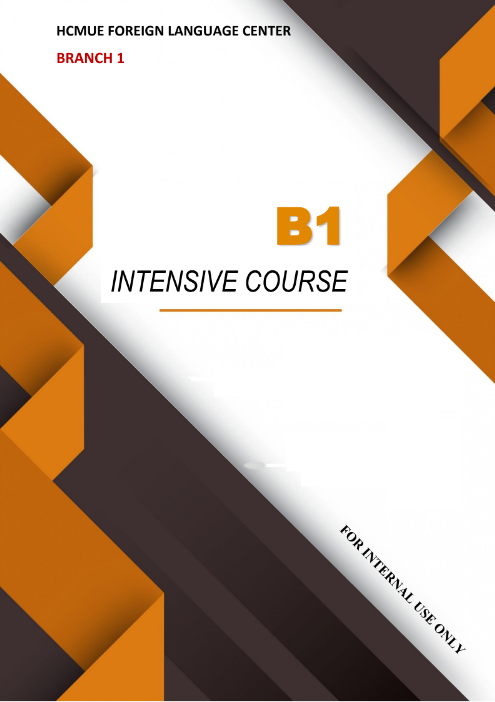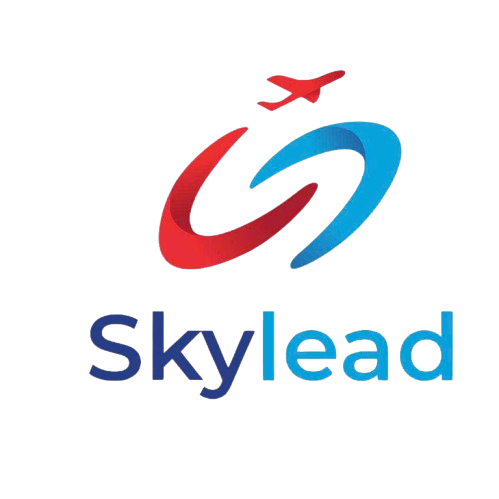


Mục lục
ToggleTHE PSYCHOLOGY OF INNOVATION
Phân tích câu 1: Innovation (chủ ngữ 1) / is (to be) / key (tính từ) / to business survival (danh từ), and companies (chủ ngữ 2) / put substantial resources into (cụm động từ) / inspiring employees to develop new ideas.
Câu trên là một câu ghép (compound sentence): Subject 1 + Verb to be + adjective + noun phrase
I. OVERVIEW QUESTIONS
To answer overview questions, you must have an overall (general) understanding of the talk or conversation. One type of overview question is a main idea or main purpose question.
Sample Item: Overview question about the main purpose
Man: I know some of you are still finishing your dinner – dinner is great tonight, isn’t it? But I want to go ahead and get started with our awards presentation. Our first award will be for the most creative new business in our community. Now, I’d like to ask Laura Mendez to come up to the microphone. Ms. Mendez is going to present our first award this evening. She is one of the best known business owners in town, and of course, for many years she has owned the Cafe Argentina, where we’re meeting and having such a wonderful dinner tonight. And here she is … Ms. Laura Mendez.
Q: What is the speaker’s main purpose? A. To introduce another speaker.
B. To discuss a new restaurant.
C. To accept an award.
D. To propose a new business.
The speaker says that it is time to go on to the awards presentation. Then he asks Laura Mendez to come up to the microphone to present the first award. As a way of introducing Ms. Mendez to the audience, he gives some basic information about her. Finally, he says, “Here she is …” – a common phrase to use when introducing a speaker. There is no information to support choice (B) or (D). Choice (C) is incorrect because the man is not accepting an award himself. Instead, he is introducing a speaker – Laura Mendez – who will present an award.
There are various ways of asking main idea questions:
- What is the speaker’s main purpose?
- What is the main idea of this talk/conversation?
- What is the main point of this talk/conversation?
- What is this talk/conversation primarily about?
- What is this talk/conversation mainly about?
- What is the purpose of this talk/conversation?
- Why is this talk being given?
- What is announced in this talk?
Sample Item: Overview question about the speaker
Woman: Good afternoon, everyone. On our tour today, you’re going to get a look at how wealthy people lived in the early 20th century. The Macfarland Museum was the home of Ian Macfarland. Mr. Macfarland moved to this town from Scotland in 1908. In 1912, he opened a factory that produced glass bottles and jars. Several years later, he opened several banks. Mr. Macfarland became a millionaire, and built this beautiful home for his family in 1920. First, let’s take a look at Mr. Macfarland’s wonderful library. Please step this way.
Q: Who is the speaker? A. A teacher.
B. A tour guide.
C. A librarian.
D. A factory manager.
The question asks about the job of the person giving the talk. The speaker says, “our tour today.” She gives some information about the Macfarland Museum, the place the audience will tour. Finally, she tells the audience to come with her. All of this information tells us that the speaker is a tour guide who is just starting a tour.
There is no reason to think that she is a teacher – choice (A) – or a factory manager – choice (D). She mentions in the talk that they will be looking at a library, but it is a private library in the museum. She herself is not a librarian – choice (C).
Here are some common ways to ask this type of overview question:
- Who is/are the speaker/speakers?
- Where is this talk being given?
- Where are the speakers in the conversation?
II. DETAIL AND NEGATIVE QUESTIONS
- Detail questions ask about specific information given in the talk or conversation.
- Negative questions ask about something that is NOT mentioned or NOT true.
Sample Items
Woman: Thanks for calling Alpha Airways’ automated flight confirmation line. If you want to hear this message in any language other than English, please press *1 for a list of the eight languages in which this message is available. To confirm a reservation on a flight, please press *2. You will then be asked to give your name, your flight number, and the date on which you are flying. If you have any problems, please press *3 to speak to a service agent. This confirmation service is only for those customers who already have a reservation for a flight and want to confirm it. To get information about arrivals and departures, please hang up and dial 1-800-555-7000. You can also make new reservations at that number. Thanks again for using the automated confirmation system, and have a pleasant flight on Alpha Airways.
Q: This message can be heard in how many languages? A. One
B. Four
C. Eight
D. Ten
This detail question asks for specific information. The talk says there is a list of eight languages, so the answer is (C).
Q: Which of the following does a caller NOT have to record? A. His or her nationality
B. The number of the flight
C. His or her name
D. The date of the flight
The talk tells the caller to record name, flight number, and date. Nationality is not mentioned, so (A) is the answer.
Có thể bạn cũng muốn đọc thêm các cuốn sách tiếng Anh sau:
Detail question forms:
- What time does … start?
- Where is …?
- What does the speaker say about …?
- How long does … last?
- How much does … cost?
- Why does …?
Negative questions always contain NOT.
- Which of the following was NOT mentioned …?
- According to the talk, which is NOT true?
- Who will NOT be part of the team?
Detail questions are the most common question type.
III. SET 1: Days, dates, and times
Vocabulary
- second / minute / hour
- day / week / month
- sunrise / dawn
- sunset / dusk
- noon / midday
- night / midnight
- one thirty / half past one
- seven forty-five / a quarter to twelve
What’s the date today? Today is February 14th.
When is your birthday? My birthday is April 15th.
What day is it today? It’s Monday.
What time do you have? Five twenty-five.
Vocabulary Practice 1
A. Look at the pictures and write the correct answers.
sunset — month — midnight — moon — week
1 ________ 2 ________ 3 ________ 4 ________ 5 ________
B. Fill in the blanks.
- 12 o’clock at night = midnight
- 12 o’clock midday = noon
- dawn : sunrise = dusk : sunset
- two thirty = half past two
- 11:45 = a quarter to twelve
C. Fill in the blanks.
Four thirty — Today is April twenty-fifth — It’s Friday
- A: What time do you have?
B: __________ - A: What day is it today?
B: __________ - A: What’s the date today?
B: __________
Warm-Up Exercises 1
A. Listen and choose the correct time.
- A. 4:02 B. 2:04
- A. 12:45 B. 1:15
- A. 1:30 B. 2:30
B. Listen and write the correct date and year.
Example: November 23, 2003
1 ________ 2 ________ 3 ________ 4 ________
C. Listen and answer.
- What year was Kate born? A. 1985 B. 1987
- How old will Kate be in 2010? A. 25 B. 23
- When is Jimmy’s birthday? A. October 27th B. May 15th
Practice Test 1
(All questions preserved exactly as given.)
- What time will the man go for a run?
A. 1:30 a.m. B. 2:30 a.m. C. 5:00 a.m. D. 6:30 a.m. - Which day of the week has the least chance of rain?
A. Monday B. Thursday C. Friday D. Saturday - What time did the woman’s meeting start?
A. 3:00 B. 3:05 C. 3:10 D. 3:15 - What time did Jack really arrive at work?
A. 6:00 B. 6:15 C. 6:30 D. 6:45 - What is the date of the man’s party?
A. January 28 B. January 30 C. February 12 D. February 16 - What time does the woman have to wake up?
A. 6:25 B. 7:25 C. 9:25 D. 10:25 - What time are the race volunteers supposed to show up?
A. 11:15 a.m. on the 20th
B. 12:00 p.m. on the 20th
C. 12:45 p.m. on the 20th
D. 11:15 a.m. on the 21st - What time is Ms. Garcia’s interview?
A. 10:45 B. 11:00 C. 11:45 D. 12:45 - What was Black Lightning’s finishing time?
A. Sixteen minutes, zero seconds
B. Twenty minutes, fourteen seconds
C. Twenty-nine minutes, forty-six seconds
D. Thirty minutes, forty seconds - When did the man leave the city?
A. April 8, 2005
B. April 15, 2005
C. April 23, 2005
D. April 8, 2006 - When did the man and woman plan to meet?
A. 11:00 Tuesday
B. 11:00 Wednesday
C. 12:00 Tuesday
D. 1:50 Wednesday - What time should the woman leave her house to go to the airport?
A. 9:50 a.m. B. 10:10 a.m. C. 10:10 p.m. D. 10:30 a.m. - When did the girl wake up?
A. Before dawn
B. After sunrise
C. After the test had started
D. At 6:00 - What time should they leave to make it to the summit by sunset?
A. 4:00 B. 4:15 C. 4:30 D. 4:45 - What day is the woman’s game?
A. Tuesday B. Wednesday C. Thursday D. Friday
IV. SET 2: Recognizing purposes, intentions, and reasons
Vocabulary
Thanking someone
- Thank you for …
- I can’t thank you enough for …
- I don’t know how to thank you for …
Responding to thanks
- It’s my pleasure.
- Don’t mention it.
- I’m happy to do it.
- It’s not much.
Making a request
- Can you tell me where …?
- Would it be possible for you to …?
- I’d really appreciate it if you could …
Accepting a request
- No problem.
- Certainly.
- I’d be happy to.
Vocabulary Practice 2
A. Complete the sentences.
- My grandmother sent me a birthday card. I really appreciate it.
- Parents warn their children of the danger of talking to strangers.
- I hate to tell you this, but I’m afraid that they will reject your offer.
- You were so rude to Mr. Bonds. I want you to apologize to him.
- After the interview, thousands of viewers called to complain about the interviewer’s lack of knowledge.
B. Pictures
1 ________ 2 ________ 3 ________ 4 ________ 5 ________
C. Choose the correct answers.
- The police wanted to ___ the citizens of the danger of crime.
A. warn B. complain C. honor - I’m sure the boss will ___ Tom’s crazy idea.
A. disagree B. appreciate C. reject - I’m very grateful for your help. I’ll always ___ that.
A. refuse B. appreciate C. cheer
Các sách tiếng anh khác cùng chủ đề:
- Tải FREE sách Vocabulary For 22 Topics In IELTS PDF
- Tải FREE sách Practice Makes Perfect English Conversation PDF
- Tải FREE sách Understanding IELTS Writing – Logic Và Cấu Trúc Bài Viết Task 2 PDF có tiếng Việt
- Sách IELTS Reading Cẩm Nang Học IELTS Từ A – Z – Wise English PDF có tiếng Việt
- Tải FREE sách Intermediate Ancient Greek Language PDF



